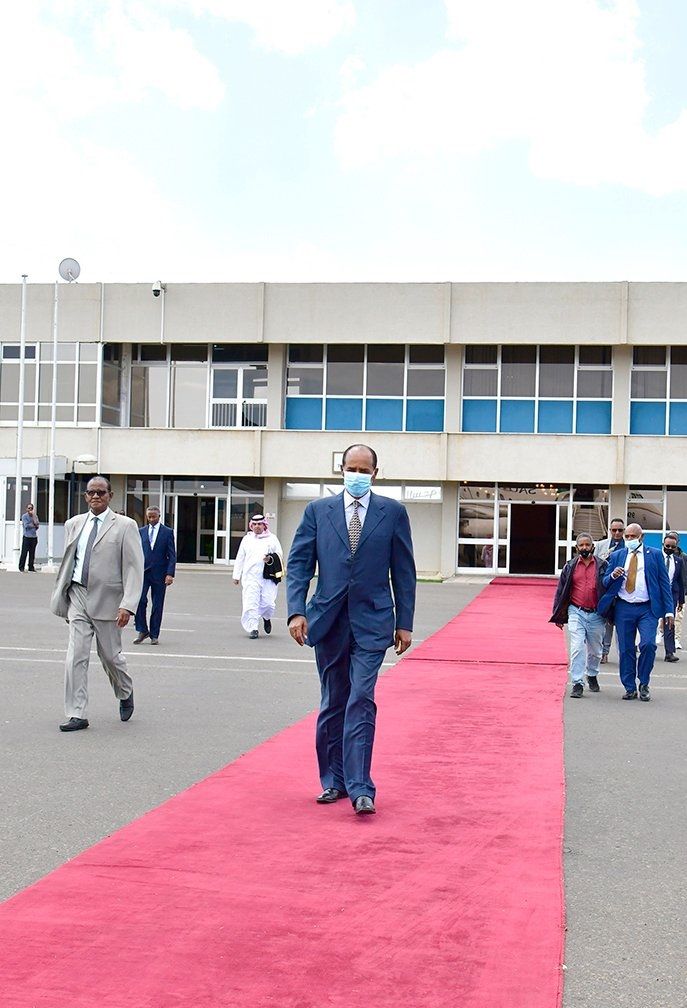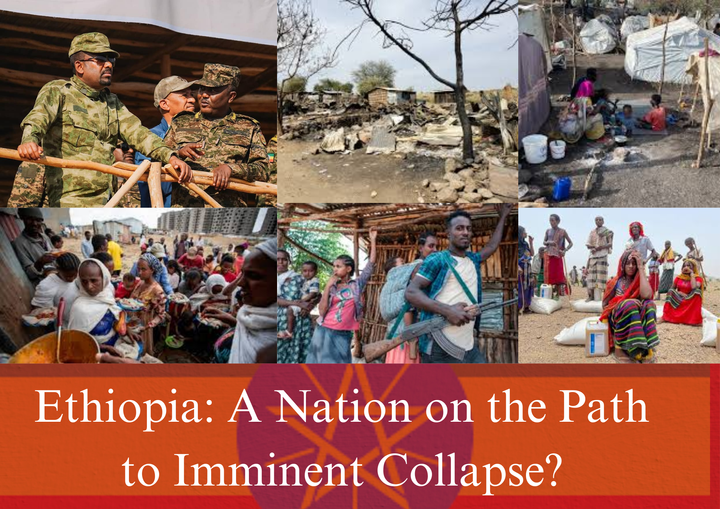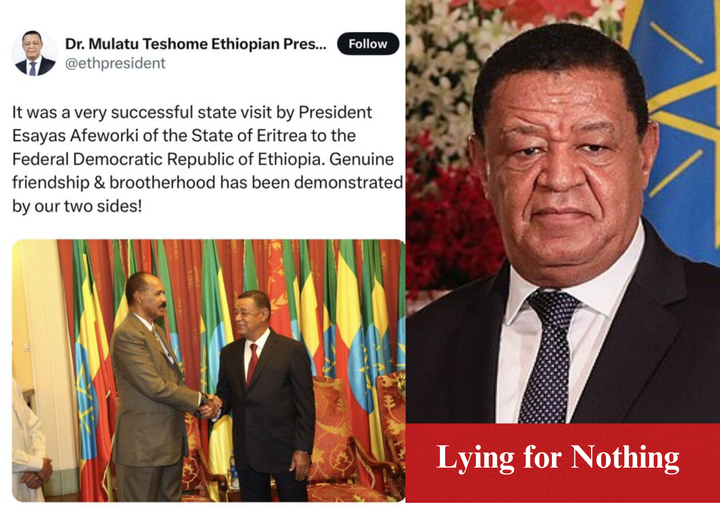Saudi Arabia and Eritrea Boost Eternal and Existential Connections in Crucial Relationship
On February 28, President Isaias Afwerki embarked on a journey to Saudi Arabia in response to an invitation from the Government of the Kingdom of Saudi Arabia. The purpose of the visit is to engage in a two-day working visit with the leaders of the Kingdom. During this visit, both sides plan to engage in fruitful discussions on various topics, including strengthening and enhancing their already solid bilateral ties and discussing regional and international issues of mutual importance.
The relationship between Eritrea and Saudi Arabia is of critical importance. It is a strategic partnership that covers various topics, ranging from tourism to the development of the Arabian Nubian Shield and from Red Sea security to trade and investment.
The two countries have a long-standing bond that goes back for years to the days of the struggle for independence. It is built on mutual respect and trust. As they move forward, the ties between the two nations continue to flourish, and they remain committed to each other's success.
Saudi Arabia's deep ties to American regional agendas may have prevented the relationship from reaching the anticipated levels for over two decades until the Arab Spring. Yet, now more than ever, given the advent of a multipolar world and Saudi Arabia's rising global influence, the Kingdom must do everything possible to improve relations with Eritrea.
In recent years, Saudi Arabia has emerged as a critical actor in the Horn of Africa, and the Kingdom has shown a strong desire to assist regional security and growth. Eritrea has therefore been a crucial ally for Saudi Arabia since it provides a pivotal entrance to the Red Sea and beyond. The two countries appreciate one another and the advantages of working together. They must cooperate to build a more affluent and secure future for their nations and the rest of the region.
The Critical Areas:
Arabian Nubian Shield Resources
Eritrea, Saudi Arabia, and the Nubian Shield countries (Egypt, Sudan, Ethiopia, Yemen, and parts of South Sudan) have an energetic relationship based on several factors.
First, the members of the Nubian Shield, including Saudi Arabia and Eritrea, have a wealth of mineral resources, including gold, copper, and iron. Saudi Arabia, the largest oil exporter in the world, is also known to contain substantial natural gas reserves. Russia's oil and gas exports were severely restricted due to the war in Ukraine, which boosted the region's relevance for the global energy market and promoted greater economic cooperation among the nations.
Second, the Saudi Arabian government introduced Saudi Vision 2030 in 2016 to diversify the economy and lessen reliance on oil. The strategy includes several efforts to support the growth of the nation's tourism industry, especially the Red Sea region.
One of the main initiatives for the growth of the tourism industry in Saudi Arabia is the Red Sea project. The project aims to develop a luxurious tourism destination with over 50 islands and a wide range of cultural and natural features along the Red Sea coast. The project's development is anticipated to generate thousands of new jobs and bring millions of tourists to the area each year.
The tourism sector is anticipated to impact the local economy in the Red Sea region significantly. By 2030, the project is expected to create more than 70,000 employment and add more than $5 billion to the national GDP. Also, it will support the growth of many other industries, such as transportation, infrastructure, and hospitality.
The Red Sea project intends to reduce environmental effects while boosting ethical tourism, which aligns with the nation's sustainable development goals. The project includes reducing trash, boosting renewable energy sources, and saving local flora and fauna. The development of the tourism industry in the Red Sea region is a crucial part of Saudi Vision 2030. The project is expected to significantly impact the local economy, create job opportunities, and promote sustainable regional tourism.
Eritrea, Saudi Arabia, and the Nubian Shield countries share a common cultural and historical heritage. The region has a long history of trade and migration, which has led to the development of a shared culture and language. Saudi Arabia is also home to the two holiest sites in Islam, Mecca and Medina, attracting millions of pilgrims worldwide yearly.
The region's nations will significantly benefit from the spillover impact. This means a voyage to Saudi Arabia from the Red Sea can stop in Eritrea, Egypt, Sudan, and other desirable locations. This will enhance Eritrea's appeal as a travel destination.
Third, Security: The Red Sea is the site of a substantial security connection between Saudi Arabia and Eritrea due to their shared regional strategic objectives. Around 10% of world trade passes through the Red Sea each year, making it a significant maritime route for trade. As a result, both nations are required to maintain peace and stability in the region.
The two nations require various security pacts, including one for cooperation in maritime security. agreements that make it possible to work together on things like intelligence sharing, joint training exercises, and anti-piracy activities. The Djibouti Code of Conduct and the Contact Group on Piracy off the Coast of Somalia are two regional initiatives to increase maritime security in which both nations have participated.
Saudi Arabia and Eritrea must contribute to the infrastructure of Eritrea's ports, particularly the ports of Assab and Massawa. By expanding these ports, Saudi Arabia can create more efficient trade routes, strengthening its strategic position in the Red Sea.
Additionally, Saudi Arabia and Eritrea must establish military ties and cooperate to perform surveillance, gather intelligence, and guarantee the security of one of the most important rivers in the world.
The protracted battle in Yemen has improved the relationships between Saudi Arabia and Eritrea. The conflicts between Sudan and Ethiopia over the Great Ethiopian Renaissance Dam and the two-year war in Ethiopia's Tigray region were also significant reasons for Saudi Arabia and Eritrea’s closer ties.
The Kingdom places a lot of attention on Eritrea. Eritrea's strategic location on the Red Sea makes it an essential partner for Saudi Arabia in this regard, as it provides a foothold on the Red Sea's eastern side, a crucial transit route for oil tankers and other shipping. This is especially true in light of its ongoing conflict with Iran.
Ultimately, there are many facets and complexities to the relationship between Saudi Arabia and Eritrea, including economic and security factors. In recent years, Saudi Arabia has worked to strengthen ties with Eritrea in recognition of the strategic value of its Red Sea location.
Their shared interests in the Arabian Nubian Shield resources and their collaboration in port development and Red Sea marine security define their relations. Also, the fact that the Red Sea's water borders connect them renders their relationships permanent and existential.
Saudi Arabia's economic diversification policy aims to lessen the country's reliance on oil exports. It will give Saudi Arabia a new commercial channel and reduce its dependence on shipping through the congested Strait of Hormuz.
To ensure stability, enhance cooperation, and assist Eritrea’s sanction-battered economy, Saudi Arabia could provide economic assistance to Eritrea in several areas, including funding for infrastructure projects, investment in Eritrea’s mining, agriculture, and assistance in energy-related projects.
President Isaias Afwerki’s two-day visits reflect the essential nature of this mutually beneficial critical relationship between Eritrea and Saudi Arabia.




Comments ()